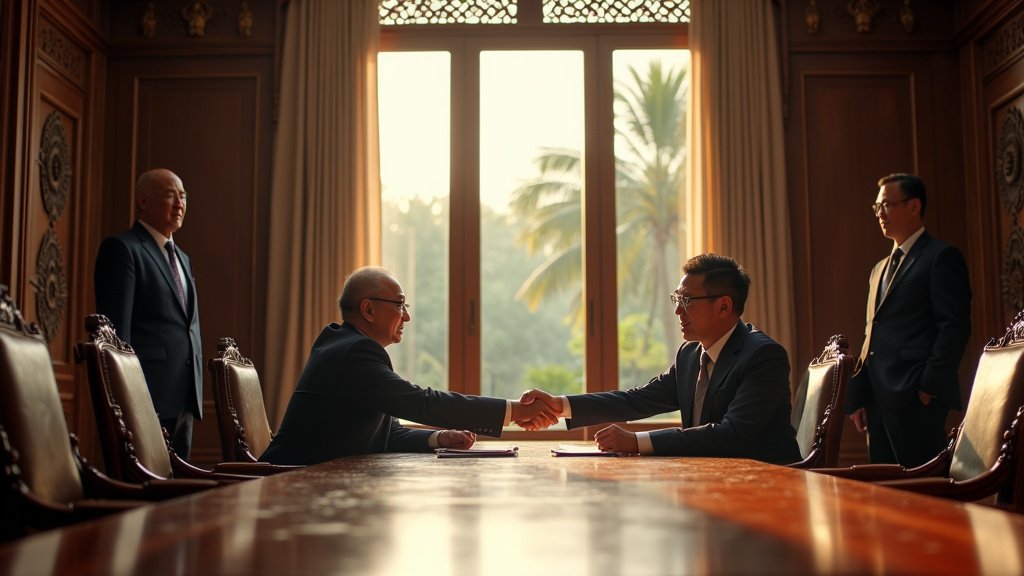Thailand and Cambodia to Seek Peaceful Resolution to Border Conflict
Bangkok, Thailand – Leaders from Thailand and Cambodia are preparing for crucial discussions aimed at bringing an end to the ongoing and increasingly violent border dispute. The meeting, scheduled to take place in Malaysia, represents a significant step toward de-escalating tensions that have plagued the region and resulted in casualties.
This announcement, made public by a spokesperson from the Thai prime minister’s office, has been met with cautious optimism from international observers. The spokesperson did not provide specific dates for the meeting but confirmed that preparations are underway to facilitate the talks. The discussions are expected to cover a range of issues, including the immediate cessation of hostilities and the longer-term resolution of the underlying territorial claims.
Background to the Conflict
The border clashes, which have intensified in recent weeks, have been marked by heavy shelling and reports of casualties on both sides. Details regarding the exact number of casualties remain unconfirmed, but the severity of the fighting has raised serious concerns about the potential for a wider conflict. Despite international calls for an immediate ceasefire, both Thailand and Cambodia have, until now, maintained their positions, though recent statements suggest a shift toward dialogue.
The contested area, a complex tapestry of disputed territory, has long been a source of friction between the two Southeast Asian nations. The issue is rooted in historical claims and unresolved demarcation issues, leading to sporadic clashes over the years. The current escalation has heightened the urgency for a peaceful resolution.
Role of Mediation and International Efforts
The forthcoming talks in Malaysia are particularly notable for their timing and the involvement of key players. Prior mediation efforts, particularly by former U.S. President Donald Trump, appear to have paved the way for the current dialogue. Sources suggest that Trump’s interventions, including warnings to both sides about the consequences of continued conflict, played a crucial role in persuading both nations to prioritize negotiations. While the specific details of Trump’s involvement remain largely undisclosed, the Thai prime minister’s office acknowledged the important role the former U.S. president played in establishing a climate for these discussions.
The selection of Malaysia as the venue for the talks is also significant. Malaysia has a strong history of mediating regional conflicts and enjoys relatively good relations with both Thailand and Cambodia, making it a neutral and potentially effective host. The Malaysian government has expressed its willingness to provide logistical support and facilitate the negotiations, further underscoring the commitment to finding a peaceful resolution.
Prospects for Peace and Future Steps
The willingness of both Thailand and Cambodia to engage in direct talks, a marked departure from their previous stance, signals a potential turning point in the conflict. These talks represent a critical opportunity to reach a lasting settlement and prevent further loss of life. Observers are hopeful that the discussions will lead to a comprehensive agreement that addresses the root causes of the dispute and establishes mechanisms for maintaining peace and stability along the border.
The agenda for the talks is expected to include a review of the current ceasefire arrangements, a discussion of the territorial claims, and proposals for confidence-building measures. Establishing these measures may prevent future escalations of the conflict. Success, however, will depend on the willingness of both sides to compromise and the continued involvement of international mediators. Further updates on the progress of these talks will be provided as they become available. The international community continues to monitor the situation closely, hoping for a peaceful and lasting resolution to this tragic conflict.

